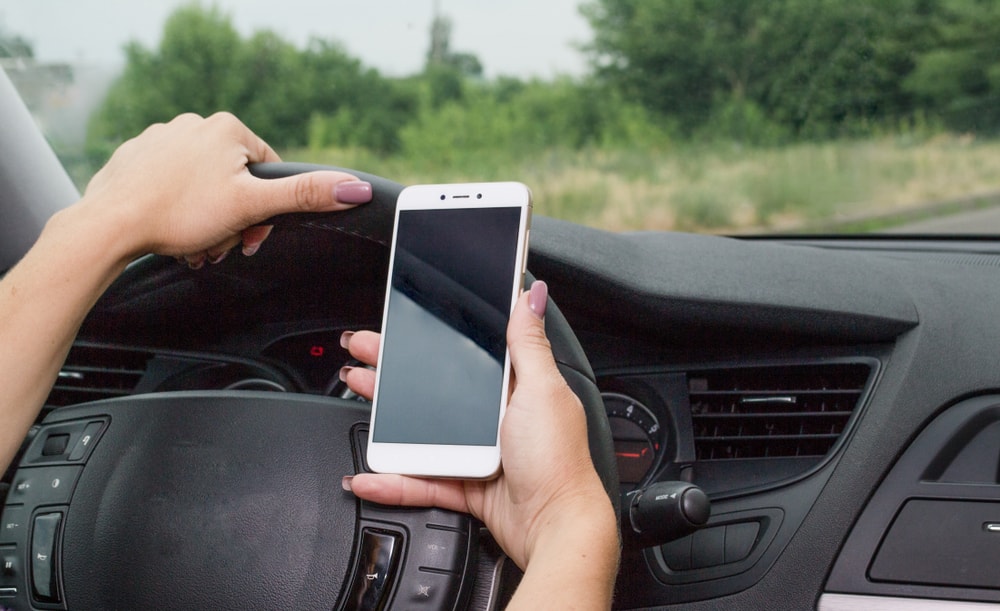Distracted driving: it’s a dangerous problem, and it keeps getting worse every year. According to the most recent distracted driver data from End Distracted Driving (EndDD), 10% of all fatal crashes in 2015 were the result of distracted driving. In 2017, 3,166 people died in accidents involving a distracted driver.
As these numbers continue to climb, some states are cracking down on texting, cell phones, and other things known to create distracted driving accidents. Florida is one of these states. Here’s what you need to know about the new laws, and how they might affect you:
What is Distracted Driving?
Distracted driving may sound pretty self-explanatory, but it’s actually an umbrella term for a handful of activities. Here’s how the National Highway Transportation Safety Administration defines it:
“Distracted driving is any activity that diverts attention from driving, including talking or texting on your phone, eating and drinking, talking to people in your vehicle, fiddling with the stereo, entertainment or navigation system—anything that takes your attention away from the task of safe driving. Texting is the most alarming distraction. Sending or reading a text takes your eyes off the road for 5 seconds. At 55 mph, that’s like driving the length of an entire football field with your eyes closed. You cannot drive safely unless the task of driving has your full attention. Any non-driving activity you engage in is a potential distraction and increases your risk of crashing.”
What many people don’t know is that there are three distinct kinds of distracted driving:
- Manual distractions, which take the driver’s hands away from the wheel of the car.
- Visual distractions, which claim the driver’s visual attention.
- Cognitive distraction, which causes the mind to wander off the task at hand
Texting, which is one of the primary types of distracted driving, actually involves all three kinds of distraction.
How Florida is Confronting Distracted Driving
Florida is one of the last states to make texting while driving a primary traffic offense. Under the new law, which bans the use of all handheld communication devices while driving, drivers will get a $30 fine for a first offense, and a $60-$100 penalty for subsequent offenses. Court costs and fees also would apply, and offenders will see points added to their licenses. The law goes into effect on July 1, 2019. Despite that, police officers will only provide warnings until January, at which point they will begin issuing citations. Under the new law, drivers are still allowed to use navigation devices and text while the vehicle is stopped.
Here are a few things to know about the new law:
- There are citation exceptions for people using their phones to check the weather or traffic alerts, or for people who are using their phone to report an emergency or contact police
- If a police officer wants to check your phone, you have to give your permission in order for them to view your phone & recent activity. If you do not grant permission, they will need a warrant to view your texts and calls. Police will not be able to request phone records from your service provider unless there is a fatal crash or one in which someone was injured.
- School and work zones have strict no-phone rules. If you are using any communication in these areas, it must take place on a hands-free device
Ward & Barnes: Your Distracted Driving Personal Injury Attorney
If you’ve been injured by a distracted driver in Pensacola, Florida, or the surrounding areas, you may need representation from an attorney that focuses on motor vehicle accident cases. Ward & Barnes is here to guide you through the period after your car accident and help you get a fair settlement. Contact us today to learn more.

